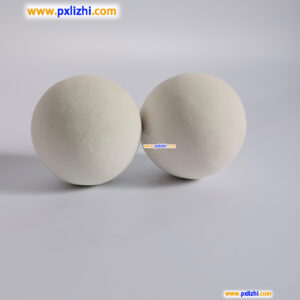
# Inert Ceramic Ball Applications in Industrial Processes
## Introduction to Inert Ceramic Balls
Inert ceramic balls are high-quality, chemically stable ceramic spheres used in various industrial applications. These balls are manufactured from premium alumina materials, offering excellent resistance to high temperatures, corrosion, and mechanical stress. Their inert nature makes them ideal for processes where chemical reactivity must be minimized.
## Key Properties of Inert Ceramic Balls
Inert ceramic balls possess several remarkable characteristics that make them valuable in industrial settings:
- High temperature resistance (up to 1800°C)
- Excellent chemical stability
- Superior mechanical strength
- Low water absorption
- Thermal shock resistance
- Uniform size and shape
## Major Industrial Applications
1. Catalyst Support in Petrochemical Industry
Inert ceramic balls serve as excellent catalyst supports in petroleum refining and petrochemical processes. They provide structural support to active catalysts while ensuring proper gas or liquid distribution through the reactor bed.
2. Packing Material in Chemical Towers
These ceramic balls are widely used as tower packing in distillation, absorption, and stripping columns. Their uniform shape promotes efficient mass transfer while minimizing pressure drop across the column.
3. Grinding Media in Ball Mills
The high density and wear resistance of inert ceramic balls make them ideal grinding media for ball mills, especially in applications requiring contamination-free processing of materials.
4. Heat Exchange Media
In high-temperature heat exchange systems, inert ceramic balls act as heat storage and transfer media due to their excellent thermal properties and stability.
5. Filtration Systems
Ceramic balls are used in deep bed filtration systems for water treatment and industrial fluid purification, where they provide effective filtration while resisting chemical attack.
## Advantages Over Alternative Materials
Compared to metal or plastic alternatives, inert ceramic balls offer:
- Longer service life in harsh environments
- Better resistance to corrosive chemicals
- Higher temperature tolerance
- Lower maintenance requirements
- Reduced contamination risks
## Selection Considerations
When choosing inert ceramic balls for industrial applications, consider:
- Operating temperature range
- Chemical environment
- Required mechanical strength
- Size and shape specifications
- Thermal shock requirements
- Cost-effectiveness for the application
Keyword: inert ceramic ball
## Future Trends in Ceramic Ball Technology
The development of advanced ceramic materials continues to expand the applications of inert ceramic balls. Emerging trends include:
- Nano-structured ceramic balls for specialized applications
- Custom-designed surface properties
- Improved manufacturing techniques for higher precision
- Development of composite ceramic materials
## Conclusion
Inert ceramic balls play a vital role in numerous industrial processes, offering unmatched performance in demanding environments. Their unique combination of chemical inertness, thermal stability, and mechanical strength makes them indispensable in petrochemical, chemical processing, and other high-performance applications. As material science advances, we can expect even broader utilization of these versatile ceramic components.